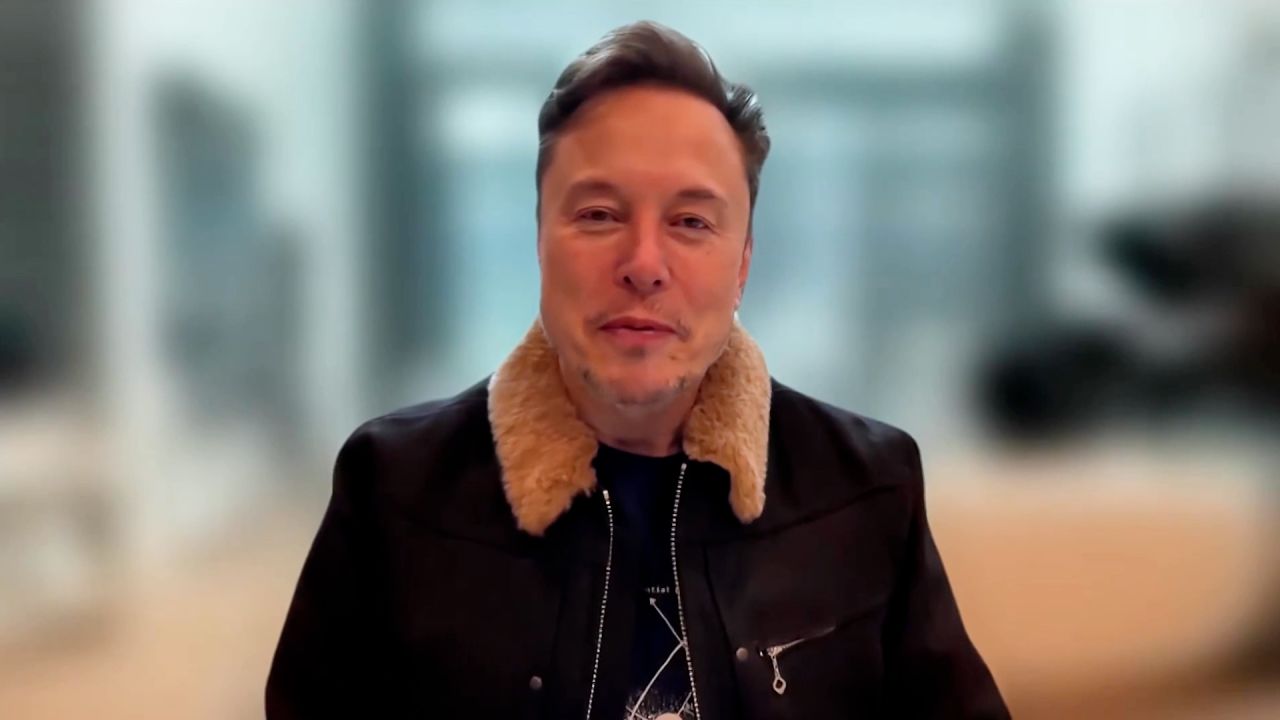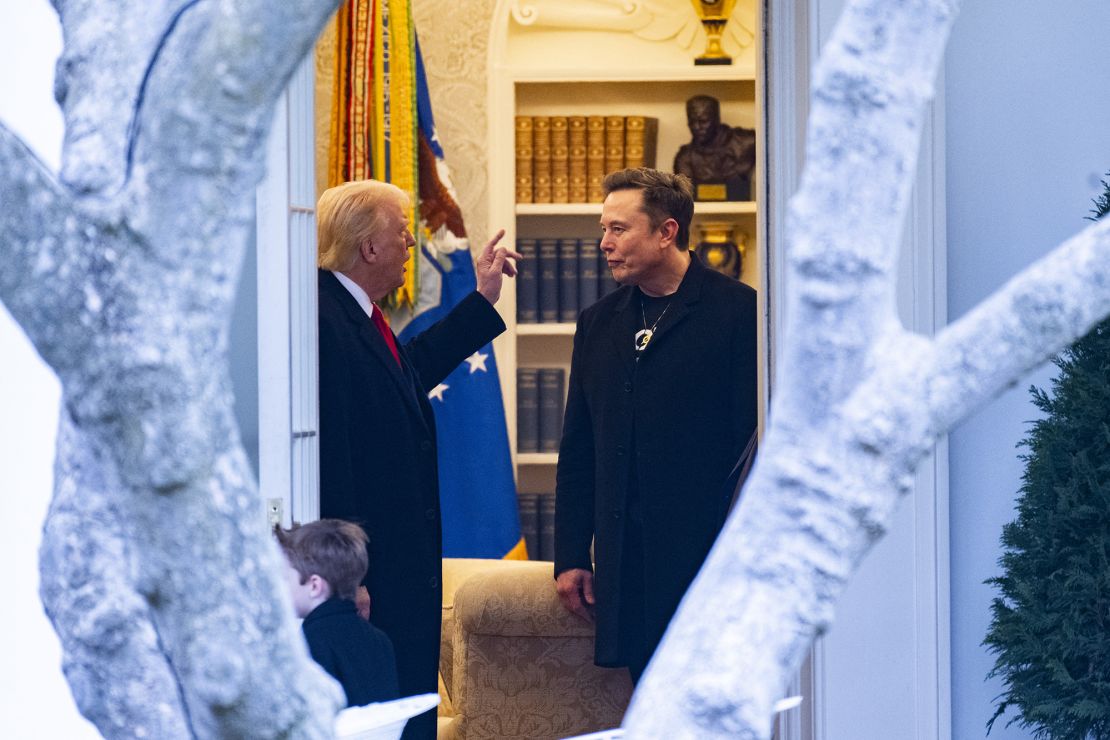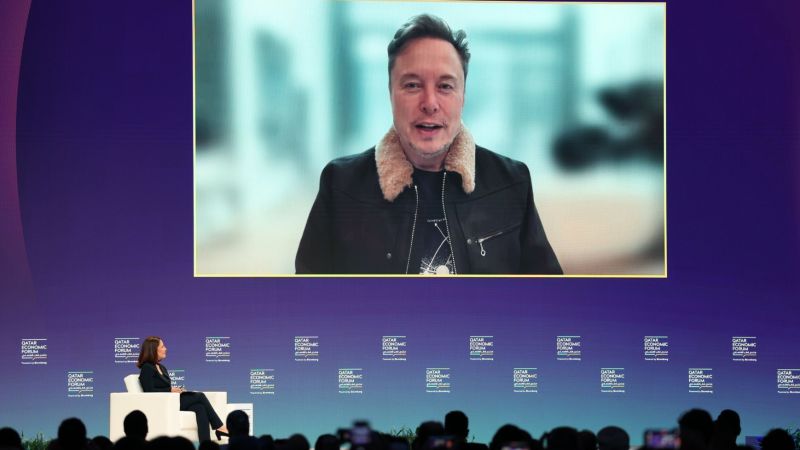Elon Musk says he'll spend 'a lot less' money on politics

Hear Elon Musk's response to question about his political spending
01:05 - Source: CNN
Hear Elon Musk's response to question about his political spending
01:05
CNN —
Elon Musk spent a record amount of money on the 2024 election to help get President Donald Trump elected.
Now he says he’ll be pulling back.
“In terms of political spending, I’m going to do a lot less in the future,” Musk told Bloomberg’s Mishal Husain at the Qatar Economic Forum. When asked why that was, Musk said he sees no immediate need to spend.
“I think I’ve done enough,” Musk said. “Well, if I see a reason to do political spending in the future, I will do it. I don’t currently see a reason.”
After spending more than $290 million to help get Trump and favored congressional candidates elected, Musk turned his political attention on a Wisconsin Supreme Court race, with Musk-linked groups shelling out more than $20 million on a judge’s race that his preferred candidate ultimately lost. He previously committed to putting $100 million into political groups controlled by Trump, CNN and other outlets have reported.
It’s not clear whether the Tesla CEO’s remarks signal any change in that financial pledge. A Musk political aide on Tuesday declined to comment.
But after several months as a top White House adviser and leading the Department of Government Efficiency, Musk is now taking a step back from full-time government work refocusing his time on his companies, including Tesla, which has struggled in part as a result of Musk’s alliance with the Trump administration.
But Musk is still in touch with Washington. He told reporters earlier this month he’d spend one to two days a week on DOGE matters and would dip in and out of Washington. Indeed, Musk told Husain on Tuesday that this week he’s having dinner with Trump and then will have meetings with Cabinet secretaries.

Musk rejected the notion that there’s an obvious conflict of interest between his work in government while also leading companies that have billions of dollars in business with that very same government.
“I don’t have formal power, and that’s it. A president can choose to accept my advice or not, and that’s how it goes. If there’s a single contract that any of my companies have received that people think is somehow awarded improperly. It would immediately be front page news, to say at least,” Musk said.
Reports of Musk’s companies being considered – and in some cases receiving massive government contracts – have been covered extensively. Musk’s companies are poised to benefit greatly from Trump’s proposed budget, for example.
Husain on Tuesday brought up that several countries have sought to allow Musk’s Starlink internet satellites to operate more in their countries as a way “to be close to the Trump administration and send the right signal.” For example, Husain brought up reports that the government of South Africa is seeking to allow Starlink ahead of President Cyril Ramaphosa’s visit to the White House on Wednesday.
“Do you recognize that as a conflict of interest,” Husain asked on Tuesday in relation to the reports about South Africa allowing Starlink to operate.
Musk said he did not see the conflict. Musk, who was born and raised in the country and has railed against what he says are racist and discriminatory policies against White South Africans, has claimed Starlink is blocked from business in the country because he is White, an allegation South African officials refuted. (There are minority ownership rules in South Africa, although according to Reuters, South Africa’s telecoms regulator said in March that Starlink had not applied for a license.)
Musk shifted to ask Husain why South Africa has “racist laws.”
“I just asked you a question, please answer, does that seem right to you,” Musk said, sounding increasingly frustrated.
“Those rules were designed to bring about an era of more economic equality in South Africa, and it looks like the government has found a way around those rules for you,” Husain said.
Musk continued pressing Husain to answer his question, as she tried to keep the interview on track. At one point, Musk asked, “Why do you like racist laws?”
Husain’s interview was one of the first times in months that Musk has faced tough questioning from a journalist in a live, on-air format. Since joining forces with Trump, Musk has mostly stuck to the comfortable embrace of friendly Fox News or podcast interviews. But Husain, a former top anchor for the BBC, clearly rankled Musk who clashed with her several times during the interview.
When Husain asked Musk how DOGE will reach his stated goal of $2 trillion in savings by next July, Musk said Husain was asking the question like a video game character who could only say certain phrases.
“It’s difficult when I’m conversing with someone who’s trafficking in the dialogue tree of a conventional journalist, because it’s like talking to a computer,” Musk said, before noting that DOGE is an “advisory group” that “doesn’t make the laws.”
During a conversation about SpaceX and whether it would ever move into making weaponized drones, Musk replied “You certainly ask interesting questions that are impossible to answer.”
CNN’s Fredreka Schouten and David Wright contributed to this report.











